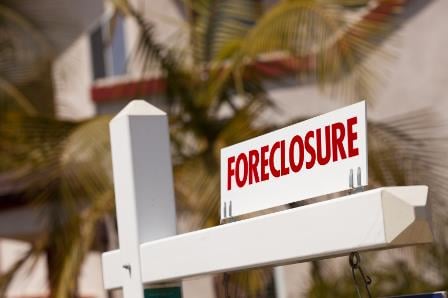Foreclosure filings in April were at their lowest level since November 2005 with 77,049 default notices, scheduled auctions and bank repossessions reported

Foreclosure filings in April were at their lowest level since November 2005 with 77,049 default notices, scheduled auctions and bank repossessions reported.
The figure from ATTOM Data Solutions, represents a 7% drop from March 2017 and a 23% drop from April 2016 and means that every 1 in 1,723 housing units had a foreclosure filing.
"Foreclosure activity continued to search for a new post-recession floor in April thanks in large part to the above-par performance of mortgages originated in the past seven years," said Daren Blomquist, senior vice president at ATTOM Data Solutions.
Blomquist added that there is an elevated share of repeat foreclosures on homeowners who often fell into default several years ago but, despite recovery for the housing market, have not been able to avoid foreclosure.
The areas with the highest rates of foreclosure filings are: New Jersey (where 1 in 562 homes has a foreclosure filing); Delaware (1 in 706); Maryland (1 in 776); Connecticut (1 in 956) and Illinois (1 in 1,083).
Atlantic City is the metro (200k + population) with the highest level of filings at 1 in 237 homes, followed by Fayetteville, NC (1 in 615), Trenton, NJ (1 in 620), Rockford, IL (1 in 668) and Philadelphia (1 in 733).
The number of homes beginning the foreclosure process in April was down 6% from March at 34,085. That’s 22% lower than in April 2016 and well-below the 77,000 average seen before the recession.
Foreclosure completions remain above pre-recession levels but were also down, by 9% in the month and 22% for the year to 25,990.
Some areas continue to show improvement way above the national average, such as Seattle where foreclosure activity was down 38% in April.
"The Seattle-area economy continues to outperform the rest of the country and the housing market is going gangbusters," said Matthew Gardner, chief economist at Windermere Real Estate. "As such, I'm not surprised that foreclosure activity continues to head towards pre-housing bubble averages. In fact, as banks continue to unwind their REO portfolios, I expect foreclosure levels in Seattle to drop even further in the coming months."
The figure from ATTOM Data Solutions, represents a 7% drop from March 2017 and a 23% drop from April 2016 and means that every 1 in 1,723 housing units had a foreclosure filing.
"Foreclosure activity continued to search for a new post-recession floor in April thanks in large part to the above-par performance of mortgages originated in the past seven years," said Daren Blomquist, senior vice president at ATTOM Data Solutions.
Blomquist added that there is an elevated share of repeat foreclosures on homeowners who often fell into default several years ago but, despite recovery for the housing market, have not been able to avoid foreclosure.
The areas with the highest rates of foreclosure filings are: New Jersey (where 1 in 562 homes has a foreclosure filing); Delaware (1 in 706); Maryland (1 in 776); Connecticut (1 in 956) and Illinois (1 in 1,083).
Atlantic City is the metro (200k + population) with the highest level of filings at 1 in 237 homes, followed by Fayetteville, NC (1 in 615), Trenton, NJ (1 in 620), Rockford, IL (1 in 668) and Philadelphia (1 in 733).
The number of homes beginning the foreclosure process in April was down 6% from March at 34,085. That’s 22% lower than in April 2016 and well-below the 77,000 average seen before the recession.
Foreclosure completions remain above pre-recession levels but were also down, by 9% in the month and 22% for the year to 25,990.
Some areas continue to show improvement way above the national average, such as Seattle where foreclosure activity was down 38% in April.
"The Seattle-area economy continues to outperform the rest of the country and the housing market is going gangbusters," said Matthew Gardner, chief economist at Windermere Real Estate. "As such, I'm not surprised that foreclosure activity continues to head towards pre-housing bubble averages. In fact, as banks continue to unwind their REO portfolios, I expect foreclosure levels in Seattle to drop even further in the coming months."



